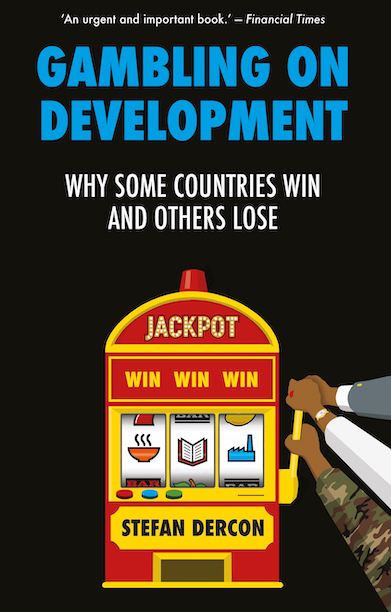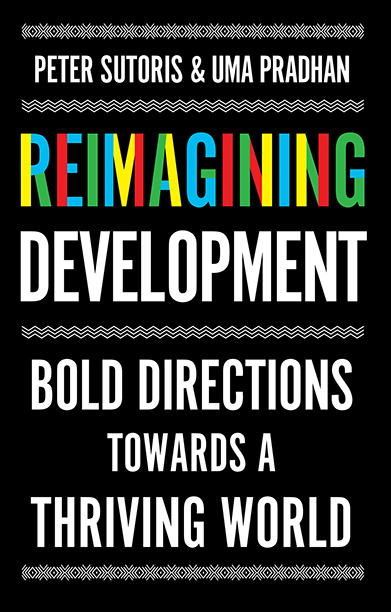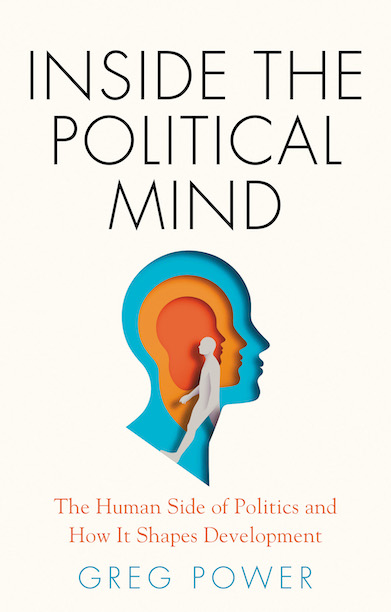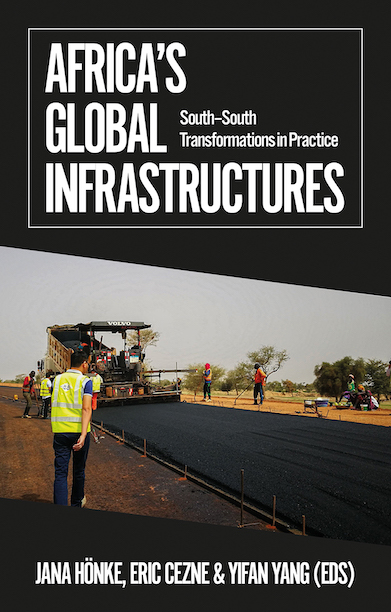Gambling on Development
Why Some Countries Win and Others Lose
How do countries achieve development? According to a leading economist, success arises when elites bet on growth.
Description
In the last thirty years, the developing world has undergone tremendous changes. Overall, poverty has fallen, people live longer and healthier lives, and economies have been transformed. And yet many countries have simply missed the boat. Why have some countries prospered, while others have failed?
Stefan Dercon argues that the answer lies not in a specific set of policies, but rather in a key ‘development bargain’, whereby a country’s elites shift from protecting their own positions to gambling on a growth-based future. Despite the imperfections of such bargains, China is among the most striking recent success stories, along with Indonesia and more unlikely places, such as Bangladesh, Ghana and Ethiopia. Gambling on Development is about these winning efforts, in contrast to countries stuck in elite bargains leading nowhere.
Building on three decades’ experience across forty-odd countries, Dercon winds his narrative through Ebola in Sierra Leone, scandals in Malawi, beer factories in the DRC, mobile phone licences in Mozambique, and relief programmes behind enemy lines in South Sudan. Weaving together conversations with prime ministers, civil servants and ordinary people, this is a probing look at how development has been achieved across the world, and how to assist such successes.
Reviews
We spend a lot of money on aid – although not as much as we used to. Does it work or is it, as some claim, a waste? And behind that, why do some countries develop and others not? Reading Our Times podcast host and journalist Nick Spencer talks to Stefan Dercon about his book Gambling on Development:
‘[An] urgent and important book.’ — Financial Times
‘A brilliant, well written and important book. Thoroughly recommended.’ — LSE Review of Books
‘Dercon uses his decades of experience as a well-travelled academician and policy advisor to the British government to provide an experiential look at the widely discussed question of why some countries grow while others lag behind.’ — Choice Reviews
‘Dercon’s skilful review of the past 20 years’ most important books is a useful primer for anyone unfamiliar with development studies. His elaborations draw on all of them. He is a development scholar who clearly deserves attention.’ — Development and Cooperation
‘This book, written by one of the greatest living development economists, is full of hard-won insights and provocative observations. Dercon’s radical modesty, fierce intelligence and deep commitment to describing what actually occurs in the field—in all its hypocrisy, comedy, tragedy, mystery and idealism—distinguishes him in a field too often defined by naive optimism and snake oil solutions.’ — Rory Stewart, former UK Secretary of State for International Development
‘A challenging, informed and insightful book. Dercon brings expertise, humility and humanity to the vital question of what makes countries poor and what can help them prosper.’ — David Miliband, president and CEO of the International Rescue Committee, and a former UK Foreign Secretary
Dan Banik and Stefan Dercon discuss the benefits and pitfalls of global development blueprints, how certain elite bargains can favour growth and development, and why some countries win and others lose.
‘Dercon’s message is sobering: there is no silver bullet for development. But any success must rest on the foundation of a bargain among elites, who commit to development and are willing to learn. This should and will be a classic in international development.’ — Yuen Yuen Ang, author of How China Escaped the Poverty Trap and China’s Gilded Age
‘The most important book on international development in a decade. An intensely political story of economic development—one that could only be written by someone with Dercon’s unusual mix of scholarship and statesmanship.’ — Christopher Blattman, author of Why We Fight
‘Why is there persistent divergence in development outcomes around the world? The focus has been on policies, but this insightful book proposes we focus instead on implicit contracts or bargains among political and entrepreneurial elites. Superbly incisive, engaging and timely.’ — Leonard Wantchekon, James Madison Professor of Political Economy and Professor of Politics and International Affairs, Princeton University
‘An ambitious and uncompromising analysis of the challenge of economic development across the world, from China and India, to Kenya and Ghana. It dissects failures and successes, drawing on diverse methodologies and Dercon’s own experience of living and working in all corners of the world. Peppered with data and direct observation, the book is fascinating to read.’ — Kaushik Basu, Professor of Economics and Carl Marks Professor of International Studies, Cornell University, former Chief Economist of the World Bank
‘Solving the problems of poverty in the world requires combining a command of what social scientists know with a mastery of the politics involved in turning that knowledge into practical policy. But scientists don’t understand politics, and politicians don’t understand science. Stefan Dercon understands both. This book is a unique achievement.’ — James Robinson, University Professor, Harris School of Public Policy, University of Chicago, and co-author of Why Nations Fail: The Origins of Power, Prosperity and Poverty
Author(s)

Stefan Dercon is Professor of Economic Policy and Director of the Centre for the Study of African Economies at the University of Oxford. Combining an academic career with long experience in international development policy, he is a former DFID chief economist and policy advisor to the UK foreign secretary.






